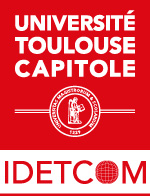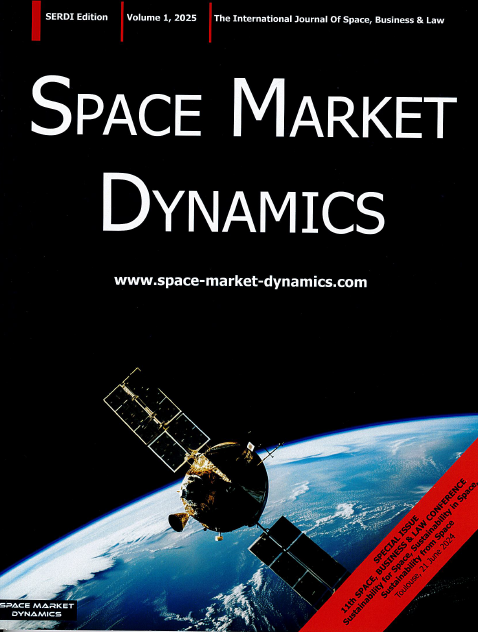Activités
Editorial: Space Sustainability in an Unsustainable World. Lucien Rapp
Recherche - Thématique
Editorial: Space Sustainability in an Unsustainable World. Lucien Rapp
le 9 avril 2025
Numéro spécial n°1/2025 de "Space Market Dynamics" présente une sélection des travaux présentés lors des SIRIUS Space Talks 2024, qui se sont déroulés à Toulouse.
Extrait
"The following is a selection of the papers presented at the SIRIUS Space Talks 2024, held in Toulouse.
Since its creation in 2013 (and even much earlier, with the active support of the Occitanie Region), the SIRIUS Chair has organized an international event every year, bringing together a cohort of world experts on a topical subject related to space activities. In keeping with its DNA, the SIRIUS Chair generally anticipates current events and proposes a cutting-edge topic for discussion. For example, it discussed NewSpace before the term became common parlance, looked at the production line for mini-satellites before the first constellations were deployed, wondered about financing and insurance mechanisms before the first space PPPs were set up, and posed the few questions linked to the evolution of the space ecosystem towards service activities, before the value chain extended to downstream activities. It raised the now major issues of space debris accumulation and eventual disposal, safety in space, the commercial exploitation of space resources, and the regime of in-orbit services, even though these were not yet subjects of reflection for many experts in the space sector.
For the 2024 edition of its Space Talks, the SIRIUS Chair has decided to depart from its usual practice in two ways: firstly, by addressing one of the issues of the moment, which has been the subject of so many colloquia, conferences and seminars that it now seems difficult to innovate in academic thinking and in the solutions likely to feed into public policy or corporate strategies; and secondly, by deciding to welcome as speakers, not established experts, but young experts, some of them still doctoral students or fresh PhDs from a European or non-European university. 18 of them were selected based on their paper proposals, in response to the call for papers that had been issued, notably via UNIVERSEH, the European Space University. The idea was not only to listen to them, but even more, to observe them and by observing them, to understand what a young generation can expect from a world whose main challenge is climate change, with a vital prognosis for it...."
Consulter l'article en ligne
Since its creation in 2013 (and even much earlier, with the active support of the Occitanie Region), the SIRIUS Chair has organized an international event every year, bringing together a cohort of world experts on a topical subject related to space activities. In keeping with its DNA, the SIRIUS Chair generally anticipates current events and proposes a cutting-edge topic for discussion. For example, it discussed NewSpace before the term became common parlance, looked at the production line for mini-satellites before the first constellations were deployed, wondered about financing and insurance mechanisms before the first space PPPs were set up, and posed the few questions linked to the evolution of the space ecosystem towards service activities, before the value chain extended to downstream activities. It raised the now major issues of space debris accumulation and eventual disposal, safety in space, the commercial exploitation of space resources, and the regime of in-orbit services, even though these were not yet subjects of reflection for many experts in the space sector.
For the 2024 edition of its Space Talks, the SIRIUS Chair has decided to depart from its usual practice in two ways: firstly, by addressing one of the issues of the moment, which has been the subject of so many colloquia, conferences and seminars that it now seems difficult to innovate in academic thinking and in the solutions likely to feed into public policy or corporate strategies; and secondly, by deciding to welcome as speakers, not established experts, but young experts, some of them still doctoral students or fresh PhDs from a European or non-European university. 18 of them were selected based on their paper proposals, in response to the call for papers that had been issued, notably via UNIVERSEH, the European Space University. The idea was not only to listen to them, but even more, to observe them and by observing them, to understand what a young generation can expect from a world whose main challenge is climate change, with a vital prognosis for it...."
Consulter l'article en ligne


